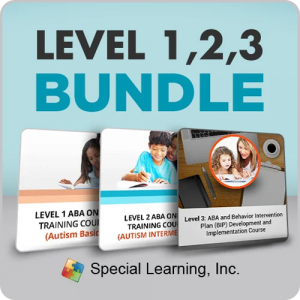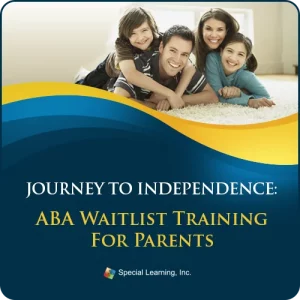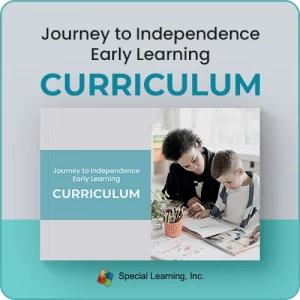Related Services Team
If you are familiar with the Individuals with Disabilities Education Act (IDEA) and the Related Services, then you must be wondering what comprises the Related Services Team. This article intends to familiarize you with the different personnel involved in related services.
First, for those of you who are not familiar with the IDEA, then here is a bit of a review on what IDEA is all about and its connection with the Related Services.
Individuals with Disabilities Education Act
IDEA used to be known as the Education of All Handicapped Children Act, otherwise known as EHA or Public Law (P.L.) 94-142. It is one of the federal laws governing the rights and educational needs of children/youth with disabilities.
This passed law is a law ensuring services to children with disabilities throughout the nation. IDEA governs how states and public agencies provide early intervention, special education, and related services to more than 6.5 million eligible infants, toddlers, children, and youth with disabilities.
Related Services Team
Related services mean transportation and such developmental, corrective, and other supportive services as are required to assist a child with a disability to benefit from special education.[2]
The regulations of the Public Law 94-142, or the IDEA, list 13 related services that students with disabilities may require to benefit from their special education programs. These are:
- Audiology
- Occupational therapy
- Physical therapy
- Psychological services
- Medical services for diagnostic or evaluation purposes only
- School health services
- Transportation services
- Counseling services
- Speech-language pathology
- Social work services
- Parent counseling and training
- Recreation therapy
- Early identification and assessment of disabilities in children.
Each of the related services is made up of personnel who are responsible for delivering services to children with abilities to aid in their educational and developmental progress. To give you a concept of this person and what their responsibilities are is a brief overview of their duties
Audiologists: They assess and identify children with hearing/sound perception loss. They are also responsible for determining the severity of hearing loss, selecting and fitting appropriate hearing aids, determining if the child needs a support group or individual strengthening programs, making referrals for medical treatment, providing auditory programs to help the child with hearing loss cope such as lip reading and speech conservation programs.
Based on the results of the hearing assessment and diagnosis of audiologists, related services are then provided by school-based audiologists or other professionals such as speech pathologists or educators.
Occupational therapists: They are responsible for the assessment and treatment of children with disabilities. They help the child develop and improve their motor skills such as using materials like pencils or scissors, playing with friends and doing exercises in school, chewing, swallowing, and making eye-hand coordination. They are responsible for the improvement of the child’s capability to do functions independently.
Physical therapists: They are provided upon referral by a physician or by another credited professional, depending on the state’s policy. Physical therapists are responsible for strengthening the child’s gross motor skills that involve mobility, endurance, and muscle strength. They are also ready to provide instructional assistance in the proper use of different mobile devices that can aid in a child’s development.
Psychologists: Psychologists are responsible for giving appropriate psychological and educational assessment tests and procedures to aid in the diagnosis and intervention of a disability. They are also the ones to plan and manage any counseling needed by both child and parents. Often, the need for a psychologist arises during the Individualized Education Program (IEP) meeting of teachers and parents.
School nurse: Procedures, such as administering medications, suctioning, intermittent catheterization, special feedings, and preventing injuries (i.e., frequent changing for prevention of sores) are provided by a qualified school nurse or a specifically trained nonmedical person who is supervised by a qualified nurse.
Transportation services: If needed, the school must provide travel to and from school, between school, and in and around the school premises. Schools must also provide the necessary equipment such as lifts, ramps, or adaptive buses if required. However, please keep in mind that not all children with disabilities are eligible to receive transportation services.
School counselors: They are assigned to help and provide support to students with disabilities in realizing their career goals, understanding their capabilities and limitations, and aiding in their behavioral development and skills. They may identify and refer students who they think need special education, as well as secure a parent’s consent for such referrals. School counselors or other qualified counselors may also help parents in coping with their child’s special needs and provide them with the necessary information and support.
Speech-language pathologists: They are intended to help children with communication disabilities, such as stuttering and impairments in speech, language, or voice difficulties. They are accountable for diagnosing fluency, language, and communication disorders. They are also in charge of providing alternative communication systems. Most importantly, the speech-language pathologists identify students or children that need to be referred to a medical professional so that necessary treatment can be given.
Social workers: Social workers prepare the social or developmental history of a student or child with a disability. They are relied on to give counseling to the child as well as the child’s family if needed. Moreover, the social worker is responsible for assuring that the student is getting all possible benefits available to him.
Recreation therapists: They are the therapists that are responsible for assessing the leisure capabilities of a student or child and providing needed therapy and education necessary to improve the child’s participation in recreational activities.
References:
Building the Legacy: IDEA 2004, US Department of Education, from http://idea.ed.gov/
Building the Legacy: IDEA 2004, Us Department of Education, from http://idea.ed.gov/explore/view/p/%2Croot%2Cdynamic%2CQaCorner%2C3%2C
Copyright © by Special Learning Inc. All right reserved.
No part of this article may be reproduced in any manner whatsoever without written permission except in the case of brief quotations embodied in critical articles and reviews. For information, contact Special Learning Inc., at: contact@special-learning.com












